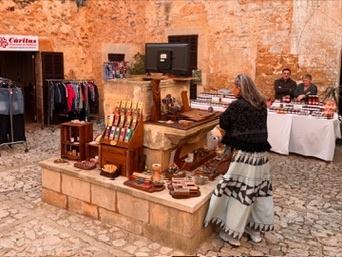What role do local culinary dishes play in maintaining Mallorcan traditions?
Similar Topics
mallorcan traditions
local culinary dishes
traditional mallorcan cuisine
mallorcan identity
sobrassada
pa amb oli
gastronomy tourism
seasonal local ingredients
Local culinary dishes are integral to preserving Mallorcan traditions, serving as a flavorful link to the island’s rich cultural heritage. The cuisine of Mallorca is deeply rooted in its agrarian past and maritime surroundings, reflecting the islanders’ connection to the land and sea. Traditional dishes such as sobrassada, pa amb oli, and tumbet are not only popular staples but also symbols of Mallorcan identity, passed down through generations. These foods incorporate locally sourced ingredients, including native vegetables, pork products, and fresh fish, which emphasize the importance of seasonal and regional produce in everyday life.
The preparation and sharing of local dishes play a crucial social role in Mallorcan communities, especially during festivals and family gatherings. These events often feature age-old recipes and cooking methods, which help to maintain culinary knowledge and foster a sense of continuity and belonging. Furthermore, traditional cuisine offers visitors an authentic taste of Mallorcan culture, facilitating a deeper appreciation for the island’s history and way of life. Gastronomy tourism has thus become a vital means of supporting local farmers and artisans, ensuring that time-honored food traditions are kept alive while contributing to the island’s economy.
In this way, Mallorcan culinary traditions act as both a cultural expression and a living practice, bridging past and present. They encourage not only the preservation of specific dishes but also the broader cultural values of hospitality, community, and respect for natural resources. By savoring these traditional flavors, locals and visitors alike participate in the enduring story of Mallorca, making food an indispensable medium through which the island’s heritage continues to thrive.
The preparation and sharing of local dishes play a crucial social role in Mallorcan communities, especially during festivals and family gatherings. These events often feature age-old recipes and cooking methods, which help to maintain culinary knowledge and foster a sense of continuity and belonging. Furthermore, traditional cuisine offers visitors an authentic taste of Mallorcan culture, facilitating a deeper appreciation for the island’s history and way of life. Gastronomy tourism has thus become a vital means of supporting local farmers and artisans, ensuring that time-honored food traditions are kept alive while contributing to the island’s economy.
In this way, Mallorcan culinary traditions act as both a cultural expression and a living practice, bridging past and present. They encourage not only the preservation of specific dishes but also the broader cultural values of hospitality, community, and respect for natural resources. By savoring these traditional flavors, locals and visitors alike participate in the enduring story of Mallorca, making food an indispensable medium through which the island’s heritage continues to thrive.
🧩 Related Questions
Related Question
What role does feedback play in improving future group tours in Mallorca through effective communication?
Related Question
What measures are being taken in Mallorca to reduce water pollution from urban areas?
Related Question
How does religious history impact the types of schools and educational approaches available in Mallorca today?
